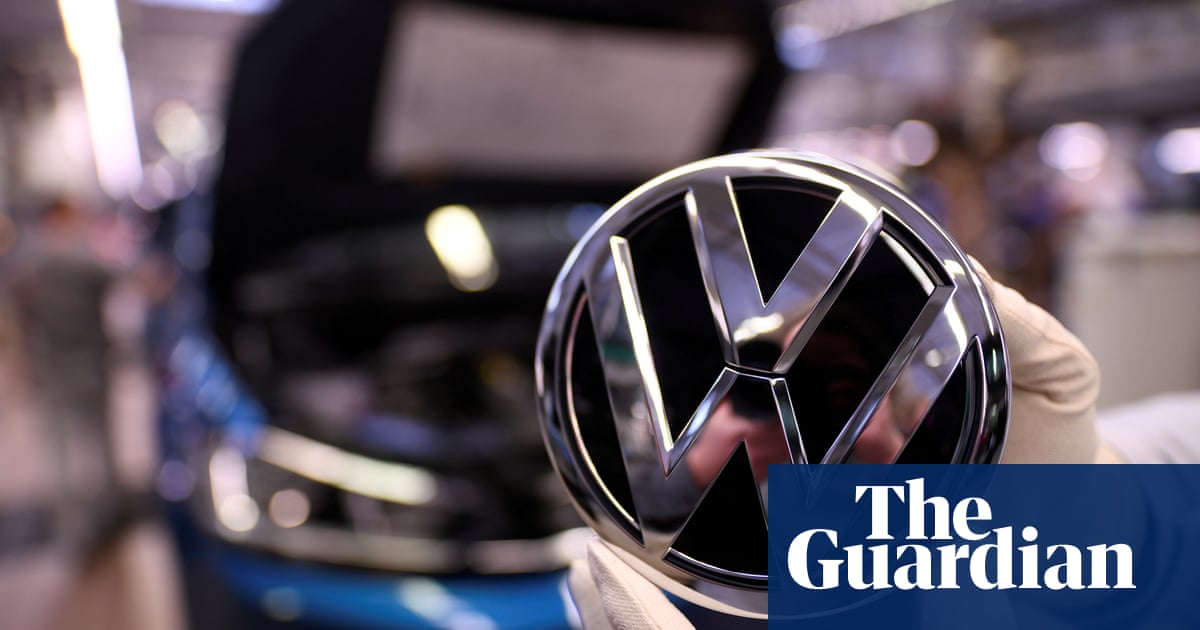Volkswagen emissions scandal: mass lawsuit opens in Germany

A landmark legal action against Volkswagen has begun, with hundreds of thousands of German consumers seeking compensation from the carmaker over emissions test cheating.
Volkswagen has already paid out more than €30bn (£26.7bn) around the world in fines, compensation and legal costs since the scandal first came to light in September 2015. The company was found to have installed software that lowered harmful emissions of nitrogen compounds under test conditions.
The case involves about 470,000 owners of diesel-powered cars sold after 1 November 2008 by the Volkswagen Group. The cars affected included vehicles under the Volkswagen, Audi, Seat and Skoda brands.
The first hearing in the trial began on Monday in Braunschweig, close to Volkswagen’s Wolfsburg headquarters. The case has been brought by the Federation of German Consumer Organisations (VZBV) on behalf of consumers. It is a declaratory model action, a new form of German legal instrument similar to US class actions or group litigation orders in the UK. The instrument was created to allow collective redress for consumers.
Volkswagen, which employs more than 630,000 people worldwide, admitted in 2015 to manipulating 11m vehicles worldwide to fool emissions tests. Along with the €30bn in costs directly related to scandal, “Dieselgate” has also prompted a slump in diesel sales across Europe following a political backlash. Volkswagen executives have admitted that the scandal has prompted them to move more quickly towards battery electric vehicles as they try to repair the company’s reputation.
Prosecutors last week charged the Volkswagen chief executive, Herbert Diess, the company’s chairman, Hans Dieter Pötsch, and the former chief executive Martin Winterkorn with stock market manipulation for their alleged failure to reveal the scandal. Winterkorn and other executives already faced separate fraud charges in the US and Germany.
The Braunschweig state court declared the suit admissible as proceedings opened, the news agency dpa reported, but suggested that the plaintiffs had plenty of work to do to prove their case.
The judge, Michael Neef, suggested that the two sides could consider a settlement, saying that “a settlement is very difficult, but possible”.
A spokesman for Volkswagen said the company would defend the claims rigorously and that it believed they were unfounded. Given the wide variety of cases under the group action umbrella, Volkswagen finds a mass settlement “hard to imagine”.
The novel nature of the action means the case is expected to last for as long as four years. If the court were to find against Volkswagen, each individual plaintiff would then be forced to make an individual application for compensation on a case-by-case basis.
In some cases, claimants’ cars could be more than a decade old, meaning that any damages paid by Volkswagen could be reduced by depreciation.
“I would like Volkswagen to reimburse the purchase price,” said Andreas Sarcletti, a customer who had made the trip from nearby Hanover. “But I’m worried the trial is going to last a very long time.”
Klaus Müller, the chair of the VZBV, the consumer group leading the action, this month said the car industry was not assuming sufficient responsibility for its actions with regard to the scandal.
All diesel owners should have their cars retrofitted with financial support from the manufacturer, Müller said. He added that the new legal instrument would allow hundreds of thousands of people to “enforce their rights”.